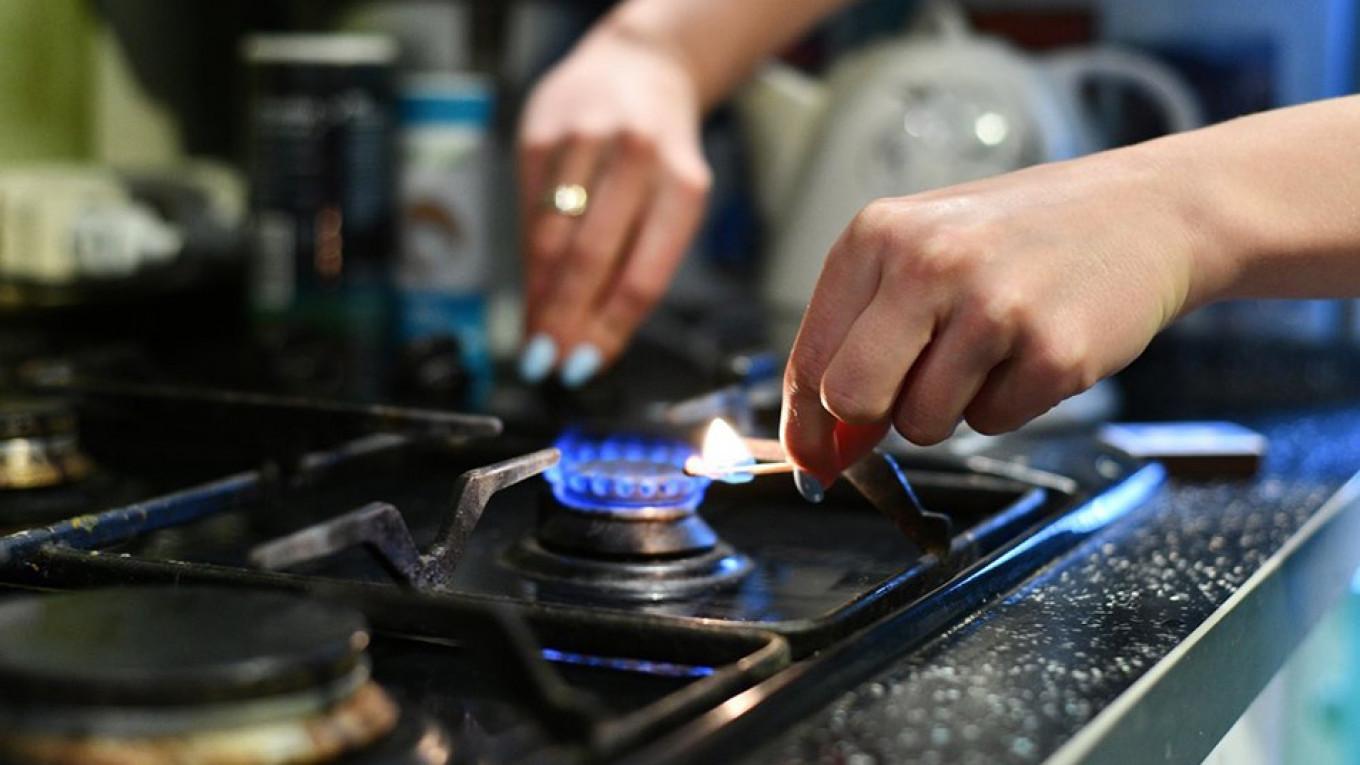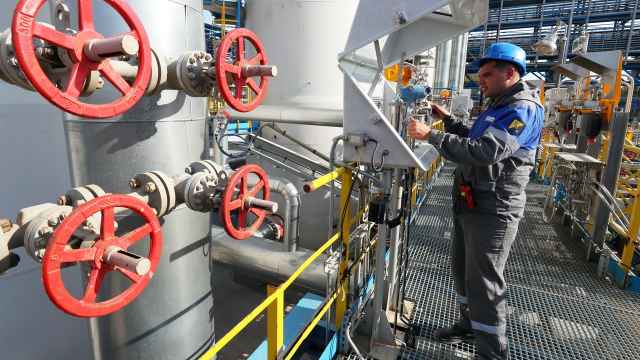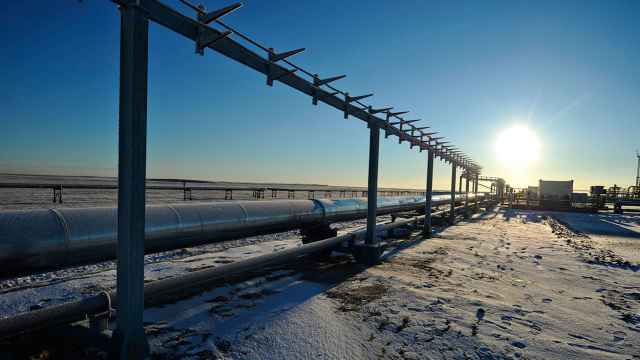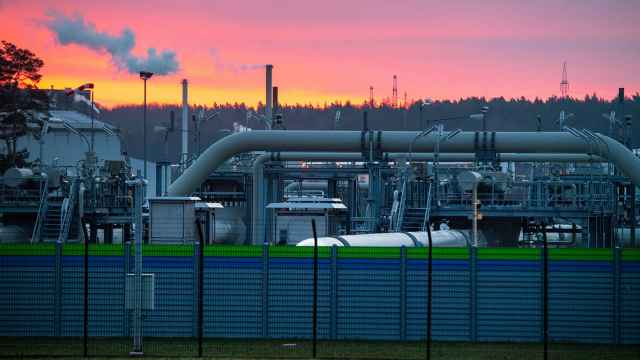The price Europe pays for Russian gas fell to its lowest level in 15 years, according to Russian national gas company Gazprom’s accounts released Tuesday.
In the third quarter, the average price per thousand cubic meters, taking into account excise tax and customs duties, amounted to $169.80. A year ago, during the same period, it exceeded $250 — equivalent to a fall of one-third.
The last time gas was so cheap was in 2004 at $137.70, before prices rose to over $190 in 2005.
The reason for the low price was an excess of supply on the market, caused by rising competition from liquified natural gas (LNG). The cost of LNG in Asia has halved after producers began sending excess supplies to Europe.
Gazprom posted a 45% year-on-year decline in net profit under international accounting standards in the third quarter, at 212 billion rubles ($3.3 billion). The fall was attributed to the decline in export deliveries and lower gas prices in Europe.
Total sales declined to 1.6 trillion rubles in the quarter, versus 1.9 trillion over the same period of 2018. Exports to Europe and countries outside the former Soviet bloc were down by 37% annually, with the price of natural gas averaging $169.80 per thousand cubic meters, down from $250.80 last year.
Gazprom was only able to partially compensate for the losses by raising prices in the domestic market and on sales to Russia’s neighboring countries.
Nevertheless, Gazprom was supported by the 5% higher top line of its oil subsidiary Gazprom Neft, thanks to strong refining performance. Another boost came from the $1.1 billion revaluation gain associated with the recent sale of Gazprom’s treasury shares, which brought Gazprom's net profit in line with expectations.
A Message from The Moscow Times:
Dear readers,
We are facing unprecedented challenges. Russia's Prosecutor General's Office has designated The Moscow Times as an "undesirable" organization, criminalizing our work and putting our staff at risk of prosecution. This follows our earlier unjust labeling as a "foreign agent."
These actions are direct attempts to silence independent journalism in Russia. The authorities claim our work "discredits the decisions of the Russian leadership." We see things differently: we strive to provide accurate, unbiased reporting on Russia.
We, the journalists of The Moscow Times, refuse to be silenced. But to continue our work, we need your help.
Your support, no matter how small, makes a world of difference. If you can, please support us monthly starting from just $2. It's quick to set up, and every contribution makes a significant impact.
By supporting The Moscow Times, you're defending open, independent journalism in the face of repression. Thank you for standing with us.
Remind me later.






